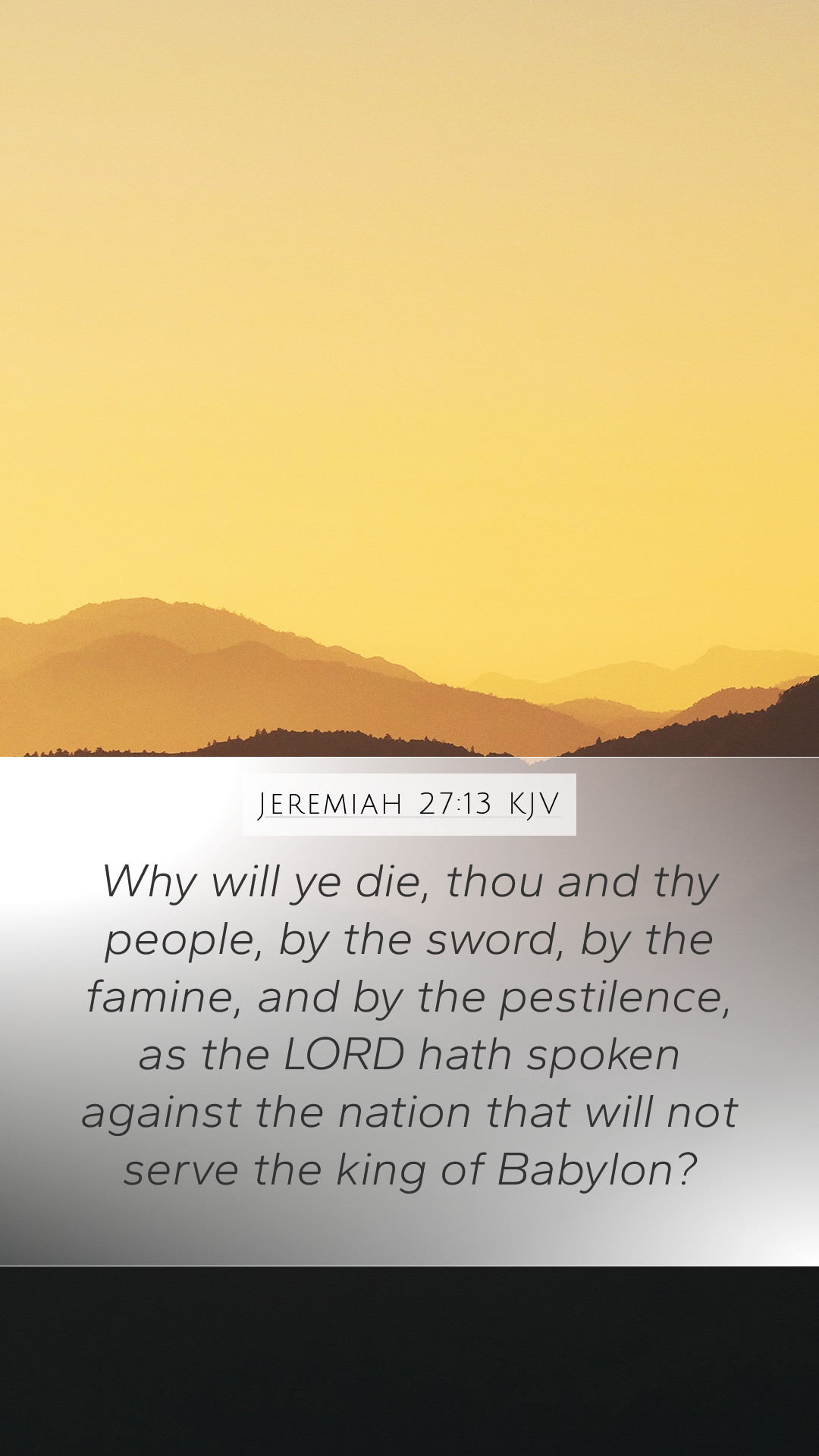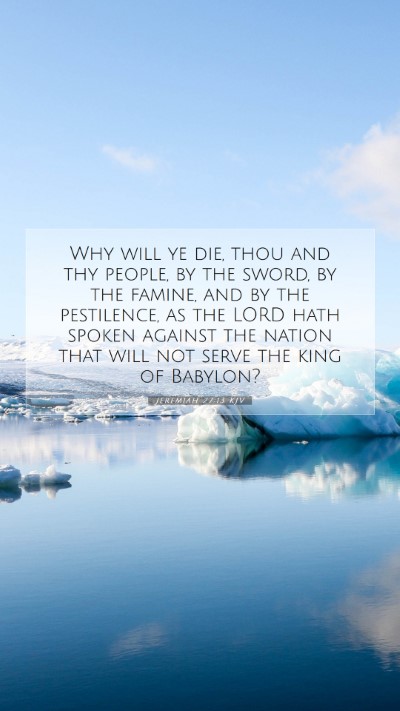Understanding Jeremiah 27:13
Jeremiah 27:13 states: "Why will you die, you and your people, by the sword, by the famine, and by the pestilence, as the Lord has spoken against the nation that will not serve the king of Babylon?" This verse serves as a dire warning to the people of Judah regarding the consequences of rebellion against Babylon during a tumultuous period in their history.
Contextual Background
This verse is situated within the prophets' admonitions to the nation of Judah around the time of the Babylonian exile. As the Babylonian empire grew in power, the Jewish people were faced with inevitable subjugation. The Lord, through the prophet Jeremiah, emphasizes the importance of submission to Babylon as part of God's sovereign plan.
Verse Meaning and Commentary
The insights from several public domain commentaries can shed light on the meaning and implications of this verse:
-
Matthew Henry Commentary:
Henry highlights the serious consequences that result from not heeding the prophetic warnings. He emphasizes that the refusal to submit to Babylon would lead to destruction by sword, famine, and pestilence, which were rampant during that period.
-
Albert Barnes Commentary:
Barnes points out the inevitability of God's decree and the futility of resistance. The warning serves as a call for the people to recognize that their suffering could be mitigated through obedience. He notes that the leadership of Babylon is part of God's broader plan for the nations.
-
Adam Clarke Commentary:
Clarke expands on the emotional plea in this verse, illustrating the burden the prophet bears for his people. He calls attention to the divinely ordained nature of their situation and warns that rejecting God’s counsel could lead to their own doom.
Key Themes
-
Divine Sovereignty: The verse illustrates God's control over empires and nations, reminding readers that He uses worldly authorities to fulfill His plans.
-
The Consequences of Rebellion: The vivid imagery of death by sword, famine, and pestilence serves as a warning against disobedience.
-
The Call to Humility: The people of Judah are urged to submit to a greater power as an act of faith and obedience to God.
-
Hope for Mercy: Implicitly, the verse suggests that those who comply may find mercy amid the impending judgment.
Application of Jeremiah 27:13
In modern application, this verse teaches about the significance of obedience and submission in various aspects of life, such as to authority and God’s will. This can resonate with individuals facing leadership struggles or societal unrest, reminding believers of the importance of recognizing God's hand at work.
Cross References
- Jeremiah 25:8-11: God declares judgment on Judah and the surrounding nations.
- Jeremiah 28:14: The yoke of Babylon represents the impending captivity.
- Ezekiel 25:7: Prophecies against nations and the divine purpose of judgment.
Conclusion
Jeremiah 27:13 serves as a powerful reminder of the importance of understanding God's plans and purposes, particularly in times of distress. It encourages believers to reflect on the lessons of submission and faith in God's sovereignty. As we study the Bible verses, let us seek to gain deeper insights into the Word and apply them thoughtfully in our lives.
For further study, consider using Bible study tools and Bible study resources to explore the historical context and themes presented in Jeremiah. Engage with Bible study groups or online Bible study platforms to deepen your understanding of Scripture.


